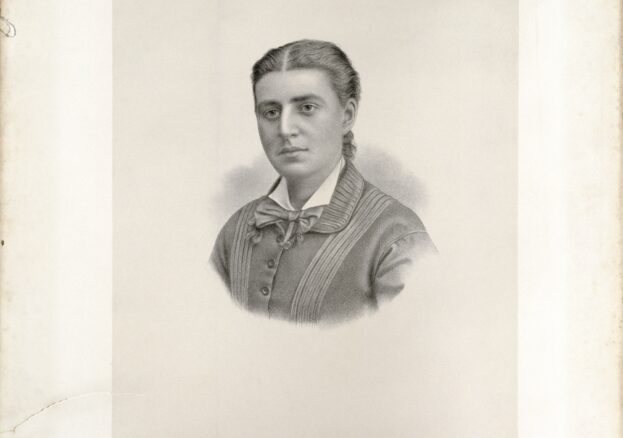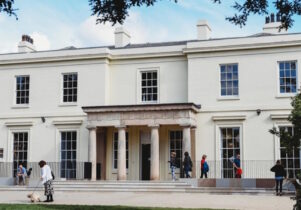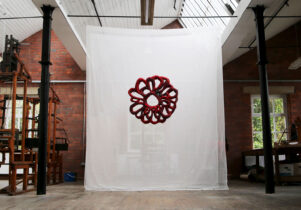Stability and Survival at Speke Hall
Sara Jaspan, Exhibitions EditorVisit now
Stability and Survival
Always double check opening hours with the venue before making a special visit.

Fly from Liverpool John Lennon Airport and chances are the first landmark you’ll spot out of the window after take-off is Speke Hall; one of the finest examples of a traditional wattle-and-daub Tudor manor house remaining. The very fact that this important and highly attractive historic building (featuring original William Morris wallpaper and a 16th century priest hole) still stands today – amidst the roar of jet engines and the sprawl of retail parks, industrial estates and housing development – can be attributed to the foresight and passion of Miss Adelaide Watt; an independent and powerful Victorian woman ahead of her time.
The last surviving member of the Watt family, which had resided at the Hall since 1795, Miss Watt became sole heiress in 1878 at the age of 21, following the unexpected and tragic death of her parents Richard and Ada. Channelling their passion for the place, she set about developing the farm complex and preserving the estate from the rapid encroachment of the city of Liverpool and its factories – even managing to reroute plans for the Manchester Ship Canal. She died in 1921, but had made careful arrangements to ensure the preservation of the house and grounds beyond her years, entrusting it to the care of her butler Thomas Watmore for two decades, before it was eventually gifted to the National Trust.
Perhaps in honour of Miss Watt’s remarkable efforts, this autumn Speke Hall presents a series of exhibitions dedicated to her fascinating life and work. Using her business letters and carefully preserved archive material, academics at Manchester Metropolitan University have created a glimpse into this bold and inspiring woman’s world, which can be experienced outdoors in the Hall’s remarkable grounds where a clever display examines the sizeable impact she left on the estate.
Miss Watts died just three years after the Representation of the People Act was passed in 1918, granting some women the right to vote for the first time in British history. Yet despite the inherently patriarchal society she lived in and the growing pressures of powerful industry, Miss Watts managed to protect Speke Hall and its legacy for generations to come – something we can all be thankful for.
This event is free, but normal admission charges apply for the venue.
Whilst you’re there, don’t miss The Bell Tree – an outdoor sound sculpture which responds to England’s alternative history of fairy-tale folklore, the ancient forest at Speke Hall and the legacy of hidden rebellion that surrounds the historic Tudor home.



























